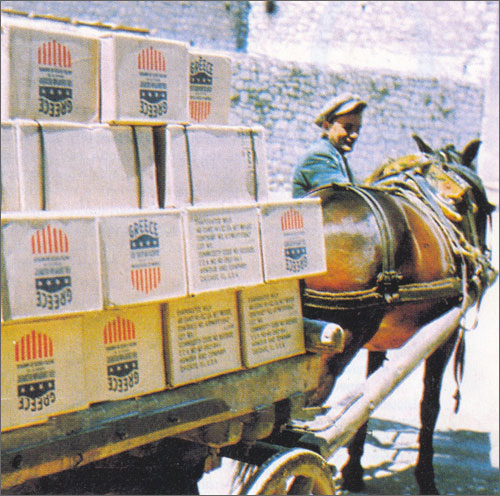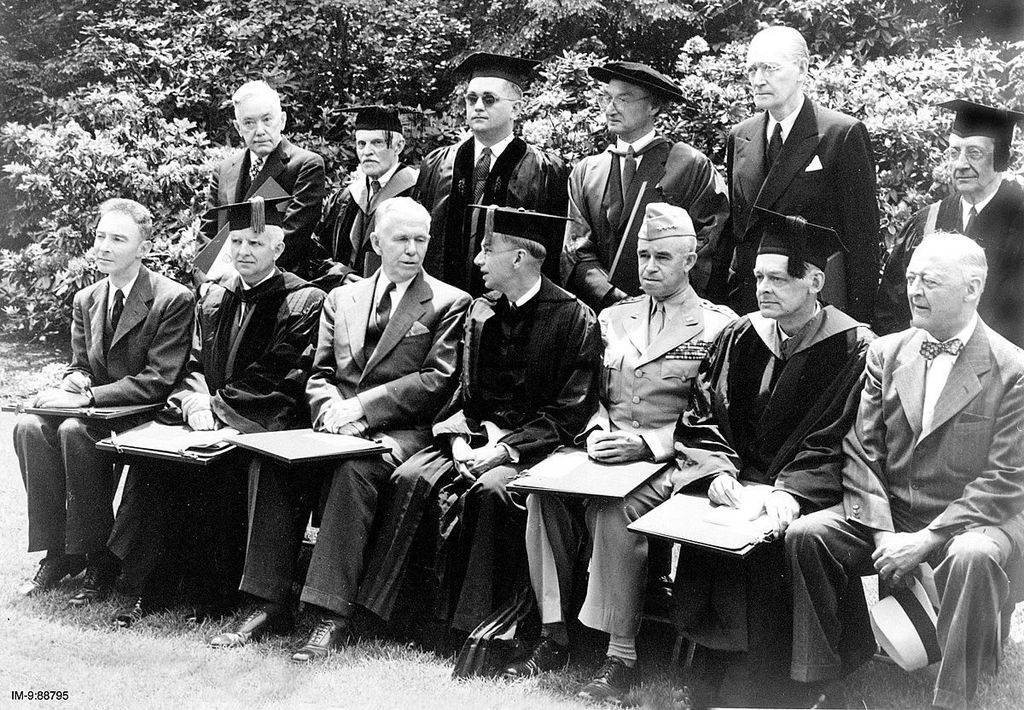Authors:
Historic Era: Era 9: Postwar United States (1945 to early 1970s)
Historic Theme:
Subject:
July/August 1997 | Volume 48, Issue 4


Authors:
Historic Era: Era 9: Postwar United States (1945 to early 1970s)
Historic Theme:
Subject:
July/August 1997 | Volume 48, Issue 4

Secretary Of State George C. Marshall received an honorary Doctor of Laws degree at the Harvard commencement exercise on the morning of June 5, 1947. That afternoon, he spoke to a group of alumni. His message was short and grim. World War II and its aftermath had brought Europe to the brink of disaster. The Continent’s requirements for the next three or four years were so much greater than its ability to pay that only “substantial” assistance from the United States could prevent “economic, social and political deterioration of a very grave character.” Since the piece-meal help already being given was inadequate, Marshall called upon the European nations to get together to draw up a comprehensive aid package that the United States would do its best to implement. His speech unveiled what would become the European Recovery Program, better known as the Marshall Plan. It was the most momentous and successful peacetime foreign policy initiative in American history.
Marshall’s offer gained immediate attention. MARSHALL PLEADS FOR EUROPEAN UNITY, ran a New York Times headline, and British Foreign Secretary Ernest Bevin later recalled his intense gratification when he heard of Marshall’s speech on a BBC broadcast. “It was like a lifeline to a sinking man,” he remembered. “It seemed to bring hope where there was none.” Bevin hurried to Paris, where he secured French support for a European conference like that which Marshall had proposed. Time was running short.
Marshall had not exaggerated Europe’s distress. To the former British prime minister Winston Churchill, Europe was “a rubble heap, a charnel house, a breeding ground of pestilence and hate.” The war had caused enormous damage to cities, factories, mines, and railroads. In the countryside a great deal of livestock had been killed and farm equipment destroyed. And as if nature itself were conspiring to retard recovery, droughts during the summers of 1946 and 1947 had drastically reduced crops, and the winter of 1946–47 had been a disaster. The greatest blizzard in centuries had combined with freezing temperatures to paralyze whole regions of Europe for months.
As Marshall pointed out in his speech, more important even than the physical damage was the “dislocation of the entire fabric” of the European economy. Cities, lacking fuel and raw materials for what machinery still functioned, could not produce goods to sell to farmers. Farmers, for their part, were unwilling to exchange foodstuffs for unstable currency they could not dependably spend to purchase the products they desired. They